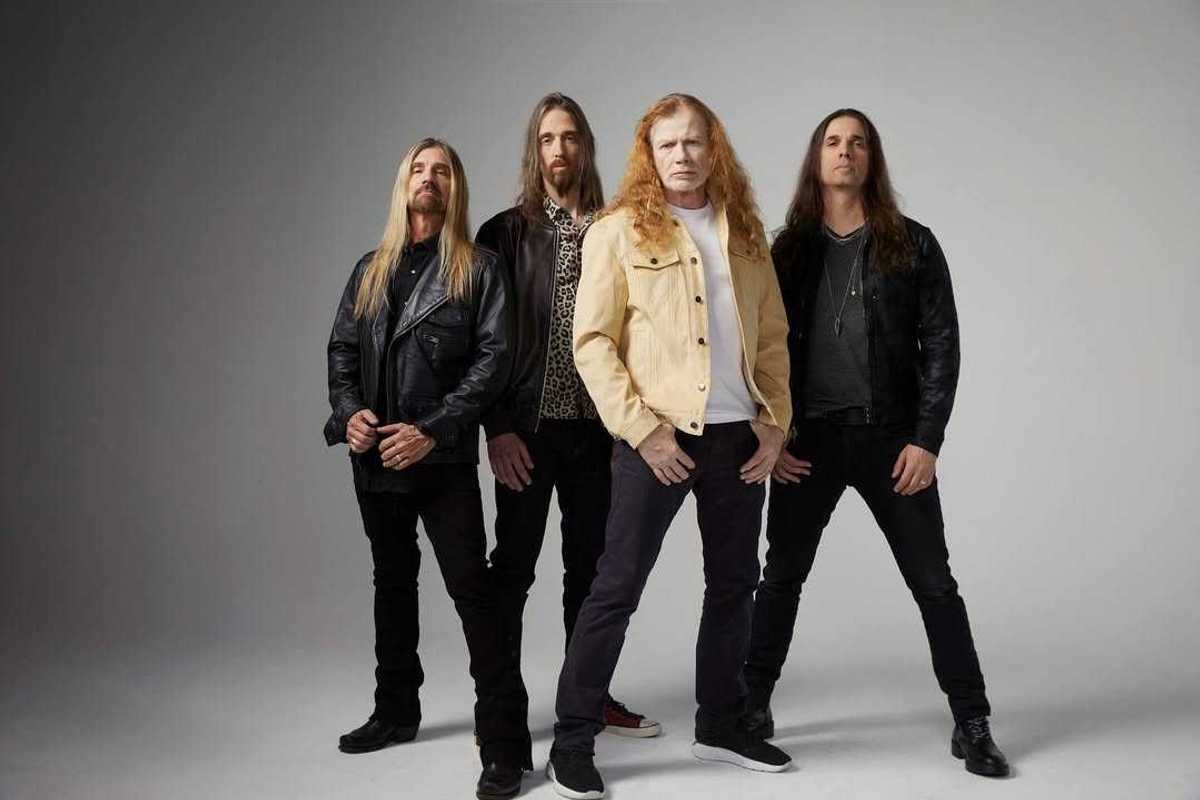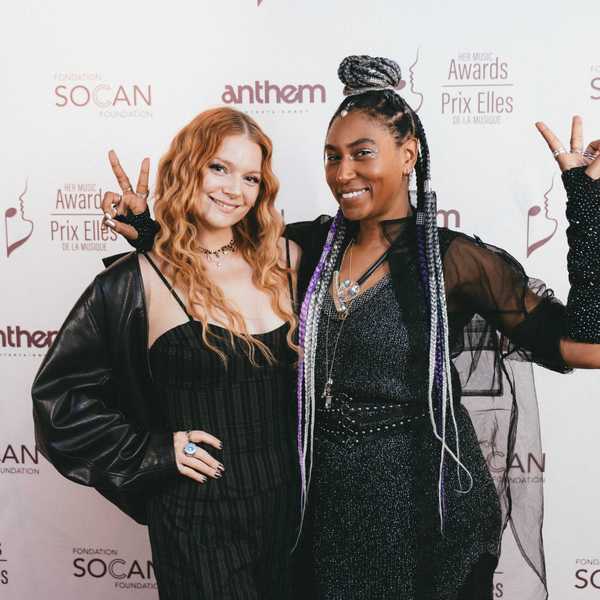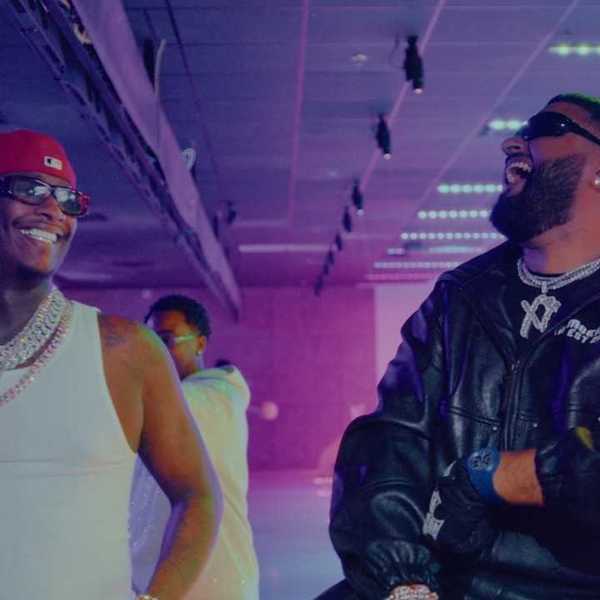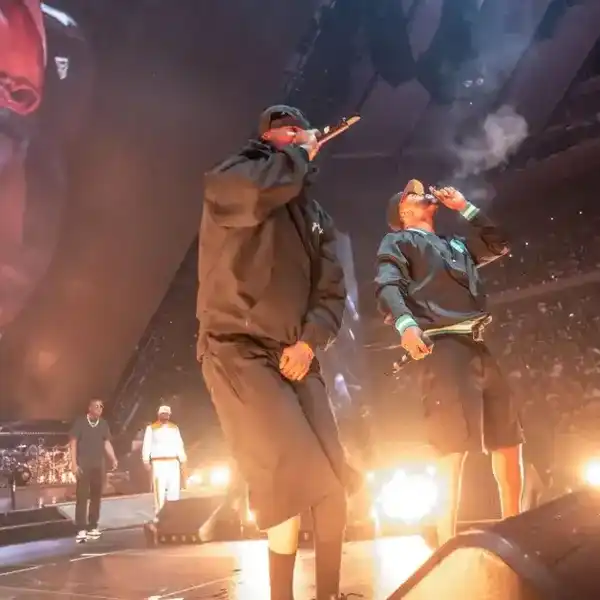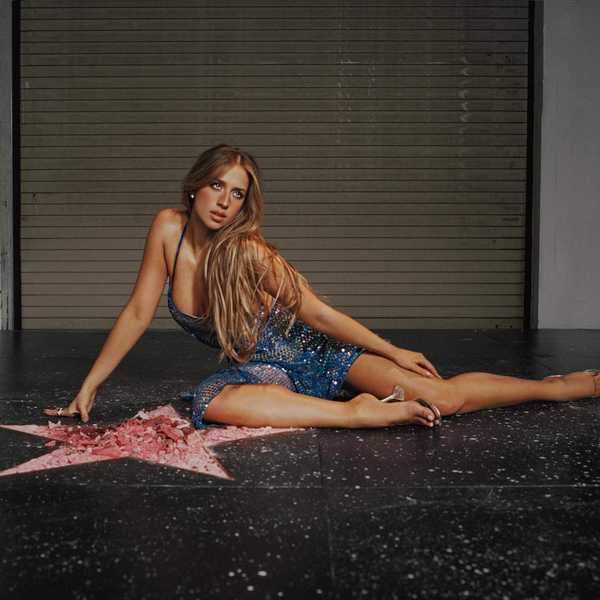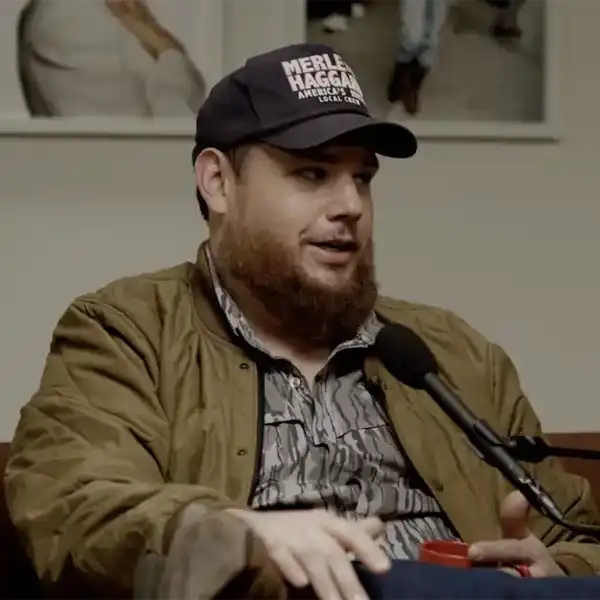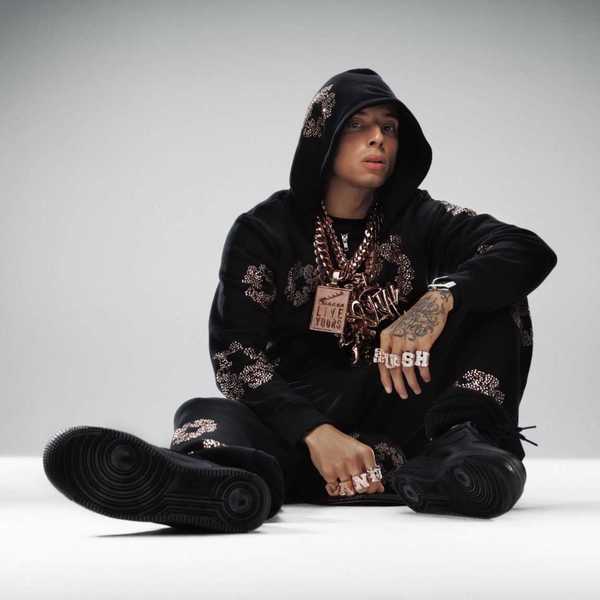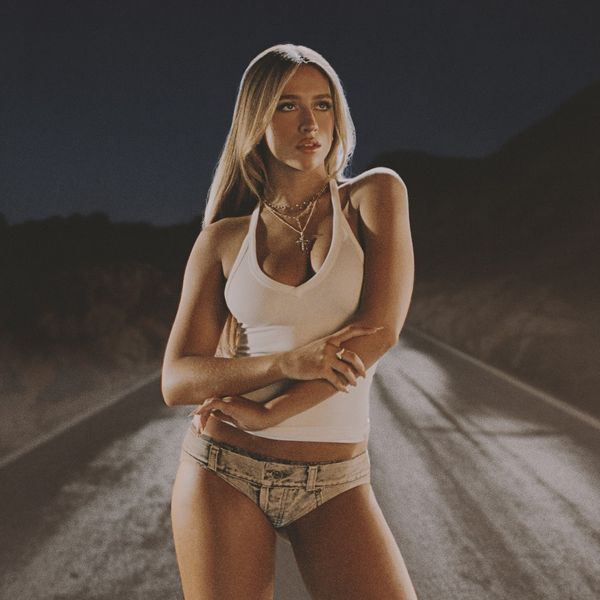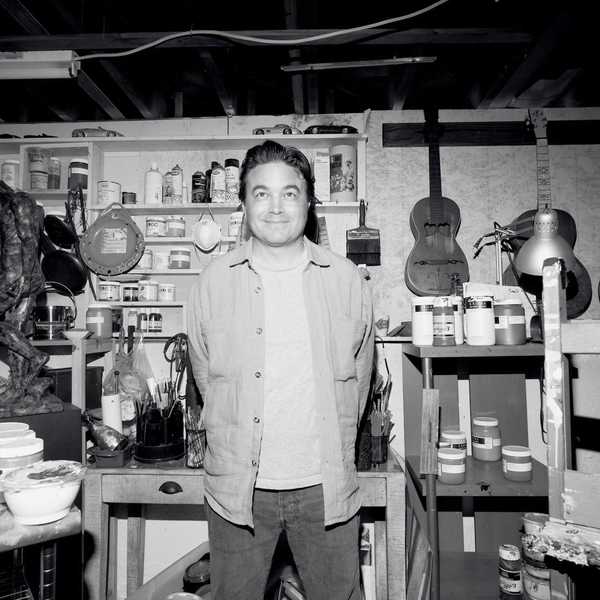Geddy Lee On His Best Selling Memoir 'My Effin' Life' and His Busy 2023
The Rush singer and bassist reflects on his big year, which included a star-studded book tour, a Paramount+ docuseries and some new solo songs.
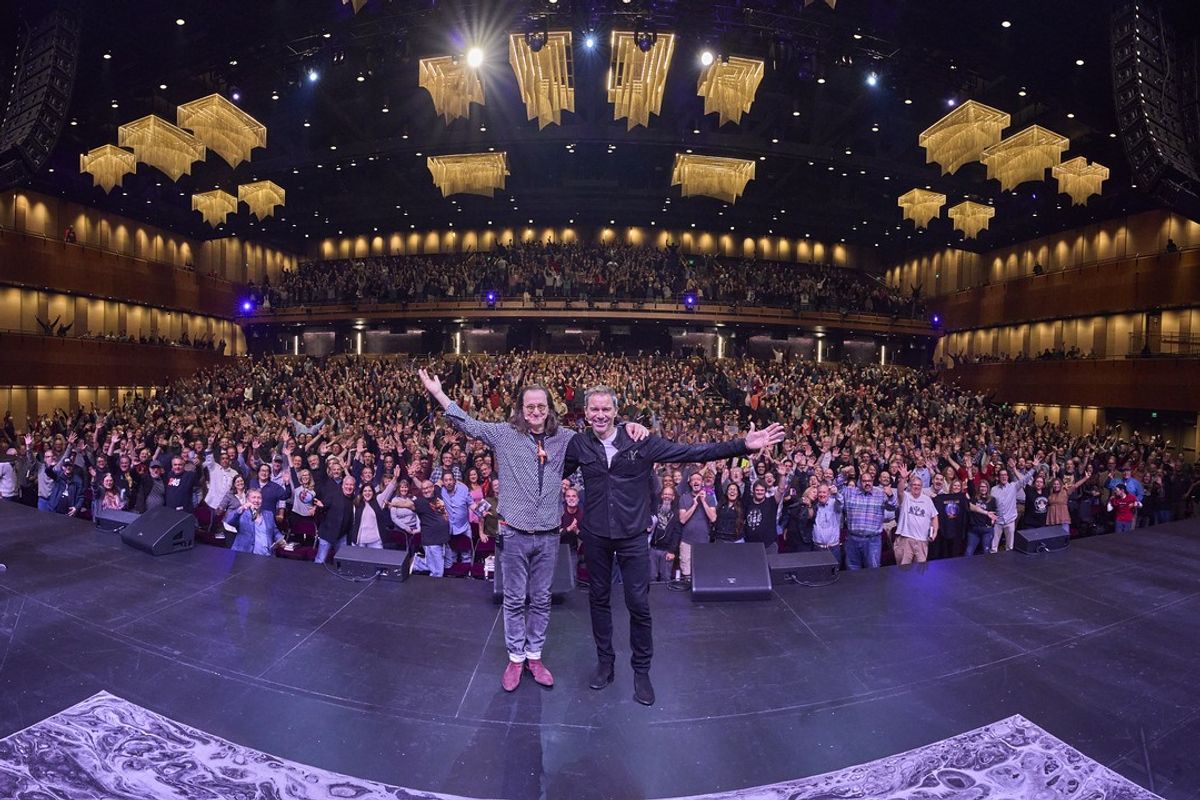
Geddy Lee with Eric McCormack at a book tour stop for 'My Effin' Life'
As the year comes to a close and we sift through the chart-toppers and breakthroughs of the year, there's one surprising name that comes up: Geddy Lee.
The bassist and singer isn't on Billboard year-end charts seven years after his legendary band Rush broke up, but he has spent weeks on another important chart. His HarperCollins memoir My Effin' Life, released Nov. 14, 2023, is No. 1 in the Canadian bestselling books list and has spent five weeks on the New York Times non-fiction best sellers, where it's currently No. 10 alongside other big-name memoirists like Britney Spears, Barbra Streisand and the late Matthew Perry.
Written with Daniel Richler, the book has some surprises for even the biggest of Rush super fans. There's plenty of drugs and rock star shenanigans, but it's also very poignant. The book starts with an explanation of how Geddy Lee became Geddy Lee, an anglicized and nicknamed moulding of his Jewish birth name Gershon Eliezer Weinrib. That sets the stage for the book, which includes an early chapter about his parents' experiences in concentration camps during the Holocaust. That alternates with tales of his life in Toronto as a young Jewish boy discovering rock and continues past the end of Rush and includes new details of the personal and health struggles of drummer/lyricist Neil Peart.
After its release, he took the book on tour throughout the United States, Canada and the U.K. Each show had a different interviewer, some who were known Rush fans and some who revealed their fandom. At different stops, he was questioned by Paul Rudd, Jay Baruchel, Jack Black, Chad Smith of the Red Hot Chilli Peppers, South Park co-creator Matt Stone, Canadian musician Melissa Auf der Mar and more. At a recent Toronto stop, he reunited with Rush guitarist Alex Lifeson for an on-stage conversation at Massey Hall, where the band first played in 1974.
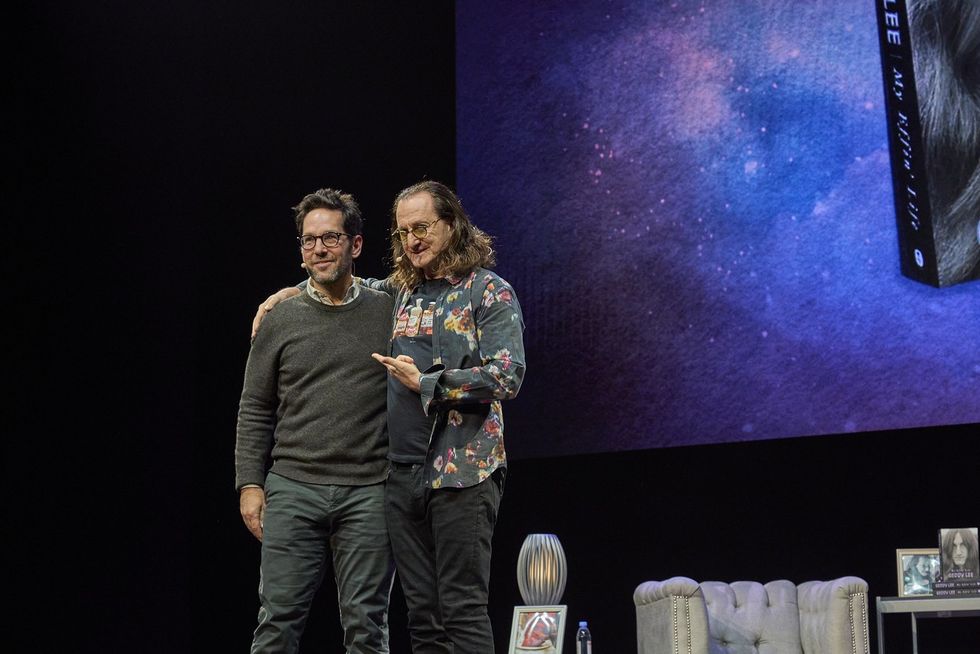
The tour capped off a big year for Lee, who was unexpectedly ubiquitous. In early December, he hosted a Paramount+ docuseries called Geddy Lee Asks: Are Bass Players Human Too? in which he visits with other legendary bassists including Krist Novoselic (Nirvana), Les Claypool (Primus), Melissa Auf der Maur (Hole, Smashing Pumpkins) and Rob Trujillo (Metallica).
And if that wasn't enough, he also released The Lost Demos: a pair of archival solo songs released for the first time to coincide with My Effin' Life. It's a lot of Geddy Lee.
The singer, bassist and writer (and comedian?) called in from his tour in Manchester to talk about his big year.
On this tour, you have a different interviewer every night. You're also getting questions from the crowd, some of which zero in on specific details from specific shows from decades ago. Have you been surprised by the questions? Are you seeing your band and your life in a new way through other people's eyes?
The questions every night are quite surprising. Some of them are funny, but most of them are quite serious and sincere. And I'm happy to see so many young fans attending that never ever got to see Rush, which in one way makes me sad for them. And for me.
The conversations with each guest host have been better than I would have imagined. When we originally set out with this plan to have a different guest in each city, it was with hopes that I would be on my toes and fresh and more authentic in the way I responded. Because night after night, of course, my fear was that I would just turn into a soundbite machine. I'm thankful that that has not happened.
At Massey Hall, you were interviewed by your bandmate Alex Lifeson in a venue you had a lot of history with. It felt very relaxed, with a very brotherly banter full of inside jokes and shared language. You could tell that you've known each other for your whole lives.
I kept forgetting the audience was there, frankly. And that's sort of the way it is with Alex and I. From the age of 13 years old, our friendship has been exactly like that. So we do have the power to alienate the room when we're at a dinner party together. And I was hoping that we wouldn't alienate the entirety of Massey Hall.
I think there were a lot of super fans there, and a lot of people shouting stuff from the audience. They were up for the minutiae.
Well, let's face it, you have to be somewhat of a super fan to spend your hard earned cash to come see a guy talk as opposed to listen to music. So I'm very appreciative of their dedication to our band. And I think that they also come in search of something. They want some answers to what transpired with our band between 2015 and today. So I feel an obligation to make sure they leave having their questions answered and finding some closure in that sense.
What have you been doing since 2015? What do people not know about the end of Rush?
Well, I think there's been so much that went on between 2015 and present day. And as far as the majority of Rush fans is concerned, the band just stopped on August 1st, 2015. They weren't privy to the drama and the unfortunate circumstances surrounding the end of the band. So I hope to shed a bit of light on what went down, why the band ended, what the feelings were and how difficult a time it was to make a decision that sort of ended their favourite band's run. And that includes why I spoke about that in my book as well.
You talk a lot about what Neil Peart might have been going through at the time with his health issues and personal tragedies. Have you had to think about how much to reveal about somebody who, unfortunately, sadly, can't bring that first-person perspective?
I'm speaking for me. I mean, yes, I'm speaking for my bandmates as well. I'm speaking for Neil too. But my intent is to speak for me, to explain what I went through, what I witnessed, and what my feelings were through my entire life. And hoping that that will help people find some closure to that whole mystery.
For those who weren't at the shows, and who maybe haven't read the book yet, what can you share about that? What is the closure? Or the really simple question is: why did Rush end when it did?
Well, there's no simple answer to that. I wrote a couple of chapters about that. In essence, a lot of things conspired to bring Neil to the point of feeling that it was time for him to spend what time he had left with his new family and be a proper father to his young daughter. And he also had fears of having hit his peak as a player and didn't want to risk going out there and not play at his best. That's a factor for all of us, but especially for a drummer that had a number of physical issues throughout that last tour and before.
So there was the difficulty that he had in agreeing to do this last tour. And also the atmosphere there towards the end where Alex and I were sad it was ending, but Neil had made the decision and he was happy at the end. So in the ensuing year, there were so many mixed emotions and a little bit of disappointment on our side, which I think was understandable. And then the cruel twist of fate that hit us all when Neil revealed that he was ill and the struggle over those last three and a half years to keep it as illness a secret. And why we felt we had to do as Neil asked and keep it a secret.
Was it cathartic after he died to see the outpouring of remembrances and tributes after he died about what a huge influence he was on so many people. Did that come around and provide some of that closure that you were talking about?
Not really, no. I mean, it was lovely to see people that appreciated his life, but it didn't help ease the grief or answer questions. In order for me to answer those questions, I had to do my own grief work. And some of that led to writing this memoir and going back in time to understand how one processes grief. There are many stories of bands that have lost band members and each one is different and each dynamic within that band is handled differently. I mean, Charlie Watts passed away in the Rolling Stones and they were back on the road within a week or so filming a memorial film and they celebrated his life. But of course that was a different circumstance. He was an older gentleman and maybe that was expected. But that's not what happened with this band, and the result was it was much more difficult to just move on.
Speaking of grief work, was it a tough decision to include the chapters about your parents' Holocaust story? I know that there's been a push in the last few years as there are less and less survivors who are alive to really get those stories out on paper. Was that part of the motivation in putting that into the book?
Writing about my parents' survival was an easy decision. In fact, it was the first decision I made when I actually did finally acquiesce and say, OK, I'm going to write a memoir. It had to include the story of my parents' survival and what they endured during the camps for so many reasons. One, as an homage to my mother, who was a remarkable person and lived to be two weeks shy of 96 years old. Another, to set the record straight for my family. I felt an urgency and a duty to do the research and to set the record straight as close as I could using second-hand information and testimony from others to piece together what actually transpired through those terrible years and how very close I came to not existing at all.
And lastly, there's the fact that people need to hear that again. A recent Economist poll showed that one in five North Americans under the age of 30 think the Holocaust was a myth. I'm here to tell you that it was not a myth. And although the eyewitnesses are disappearing, the family of those people do have an obligation to tell their story, to remind people that this thing did happen and it was horrible and it could happen again.
You're kind of ubiquitous at the moment. You've also got Geddy Lee Asks: Are Bass Players Human Too? on Paramount+, you've released a couple of unreleased solo songs from the vault, you've been on this book tour with so many high-profile interviewers like Jack Black and Paul Rudd. Did you ever expect that 2023, long after the end of Rush, would be such a prolific year for you?
No, it would seem that retirement is way busier than actual full-time employment. That's a nice surprise. I'm driven by projects and I like to pretend that I'm lazy, but I also need to be occupied and productive. After 40 years making music with the same two guys, I welcome a different kind of productivity. The isolation of writing a book, the internal conversations in my mind with doing writing is a very important and fresh experience.
At the Toronto show, someone asked you and Alex if you will you play music again together. Alex answered it with a, well, maybe. What's next for you and, maybe, for Rush?
Well, after this tour is over, and I finished promoting this book, I am going to disappear. And my wife and I will head out to some remote place and do a lot of walking. That's my immediate plan. After that, I would like to do some sort of music. If it's with Alex, that would be lovely. If it's on my own, that would also be interesting.
So maybe?
I would say definitely maybe.
What's something that people didn't know about you that you're hoping they'll learn from the book and the tour?
I hope that people will appreciate my keen sense of humour. I saw an ad the other day for one of the online events I was doing with Les Claypool, and it had be listed as musician, author and comedian. That really pleased me to no end.

